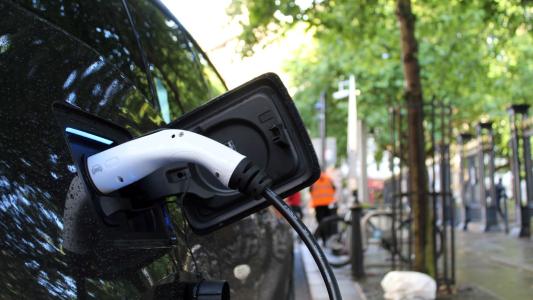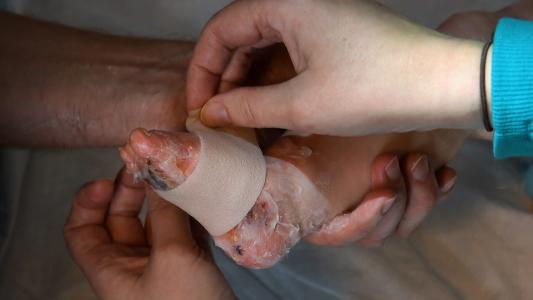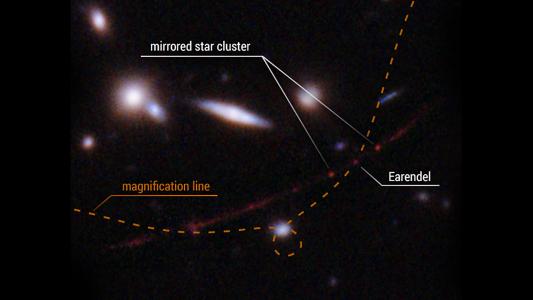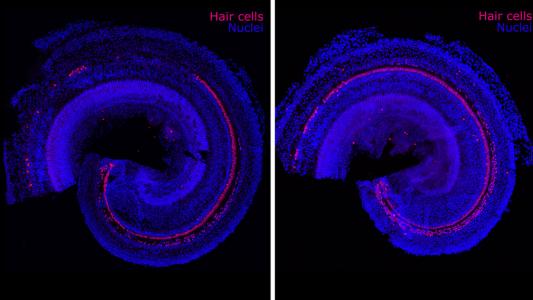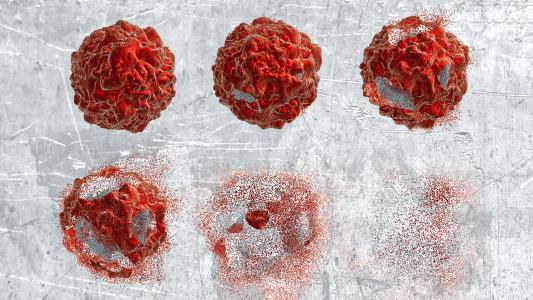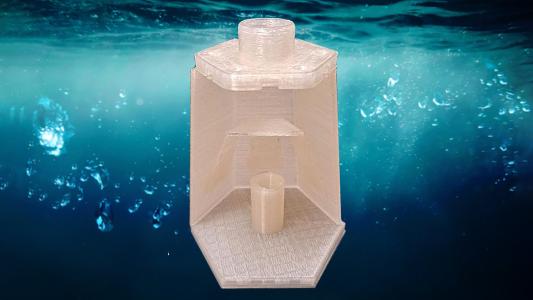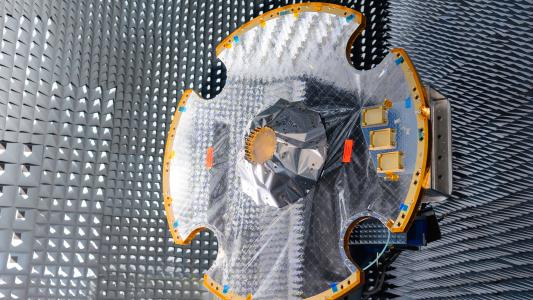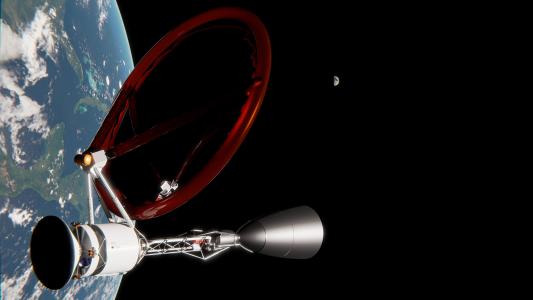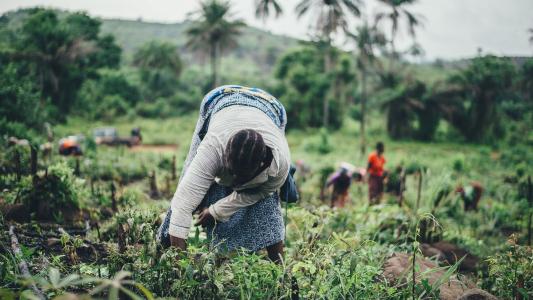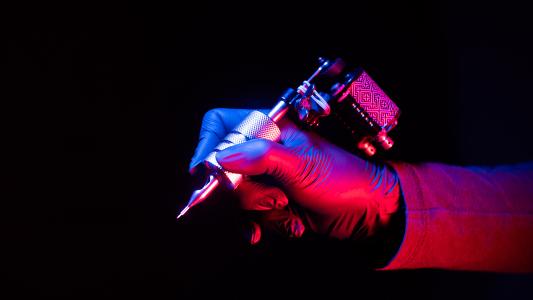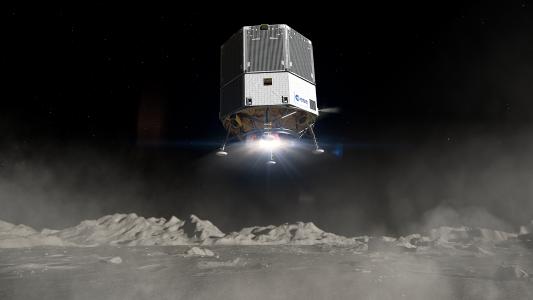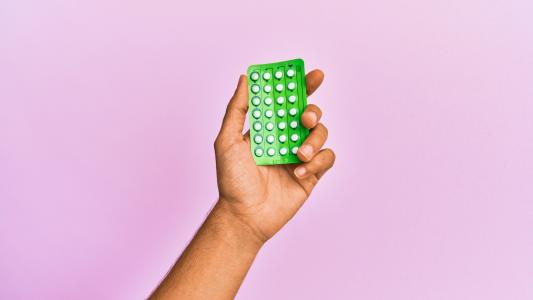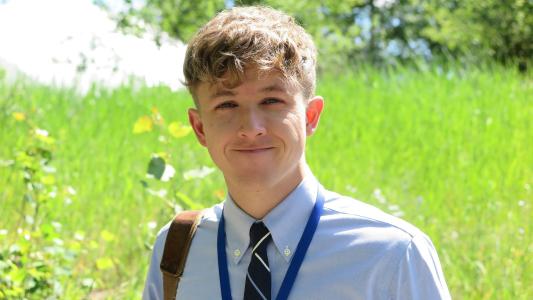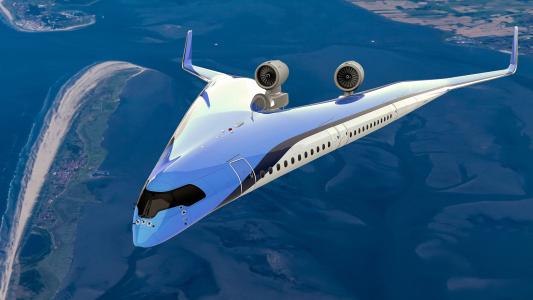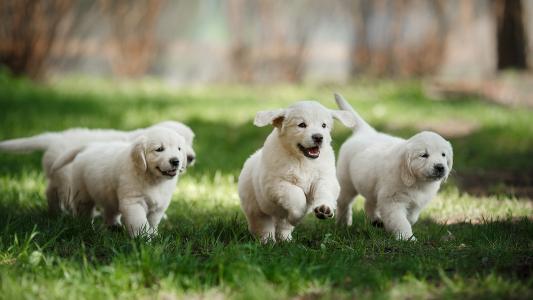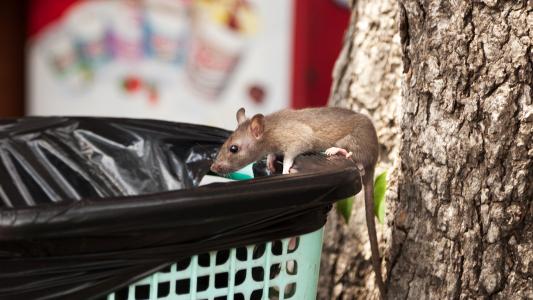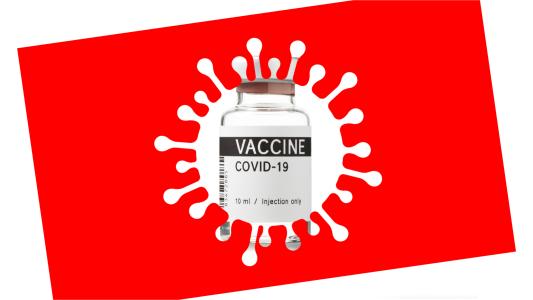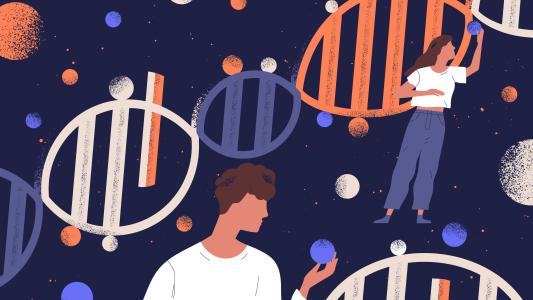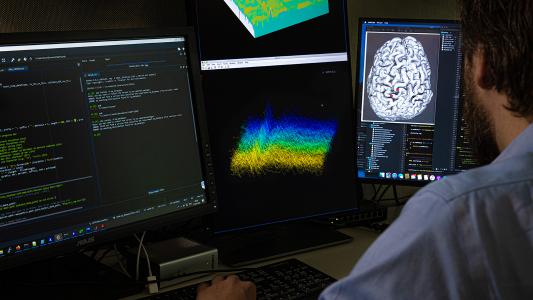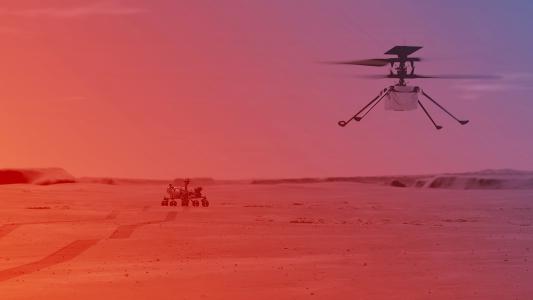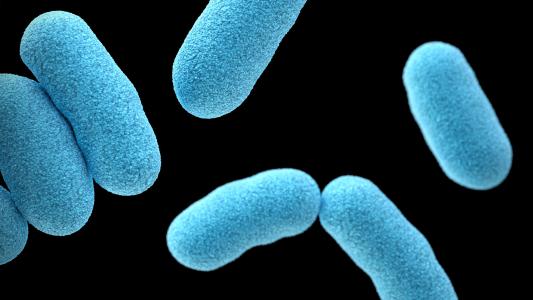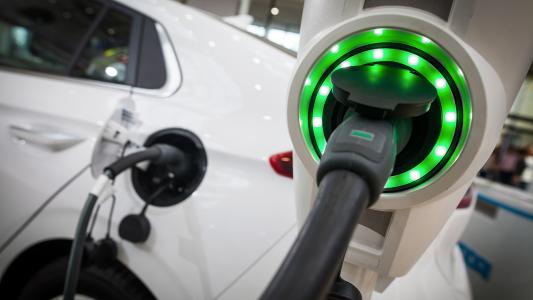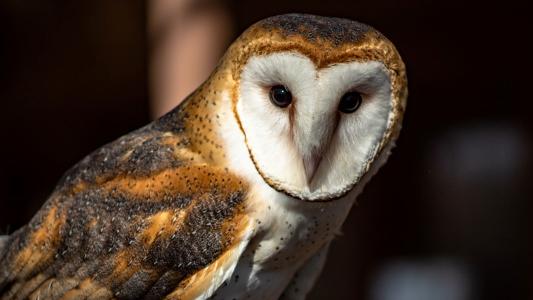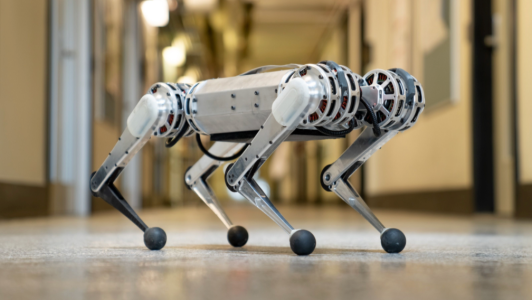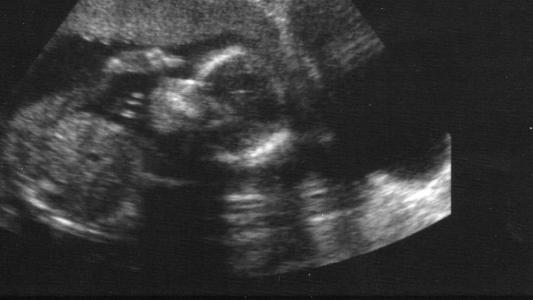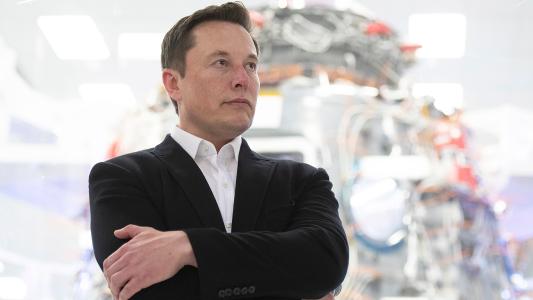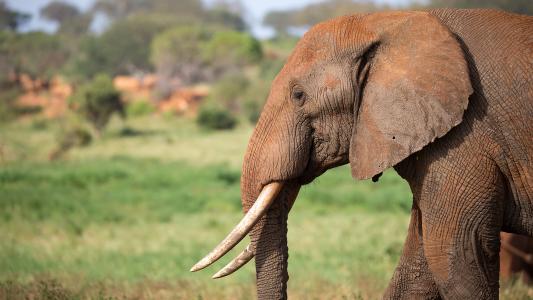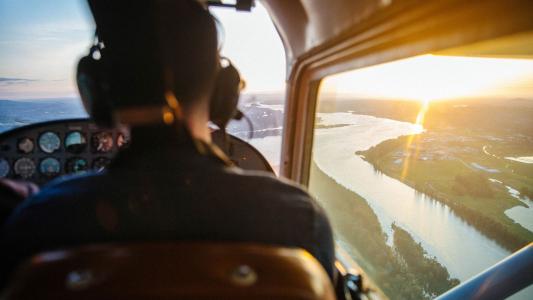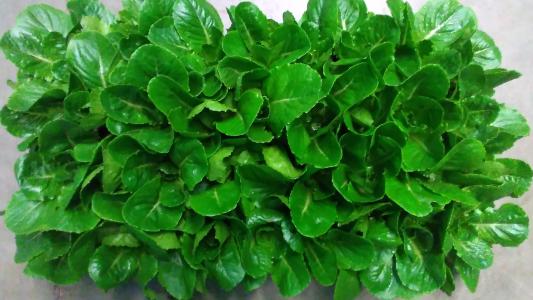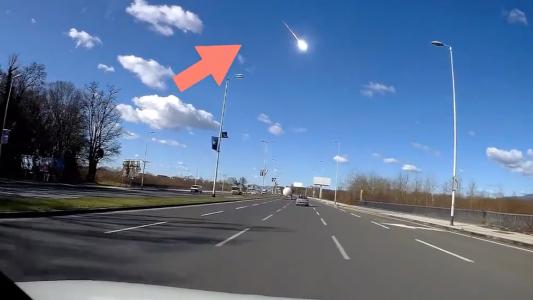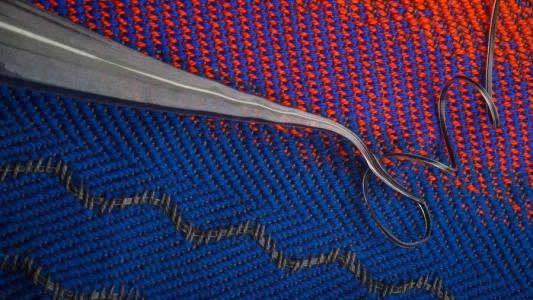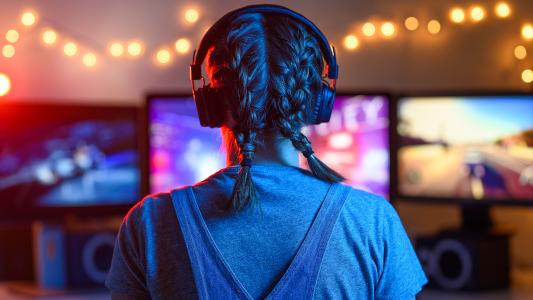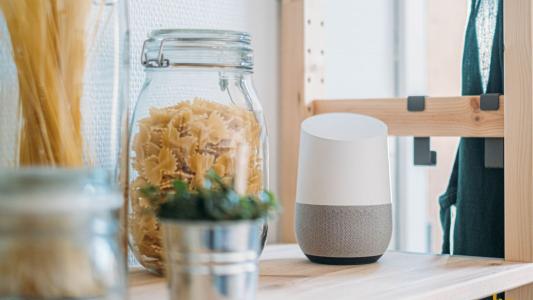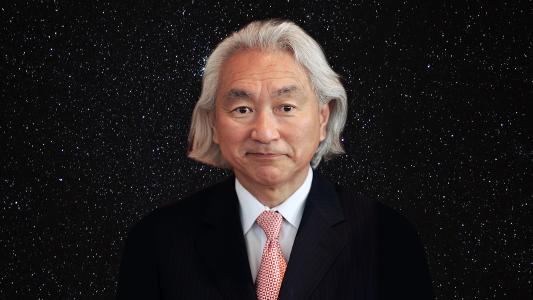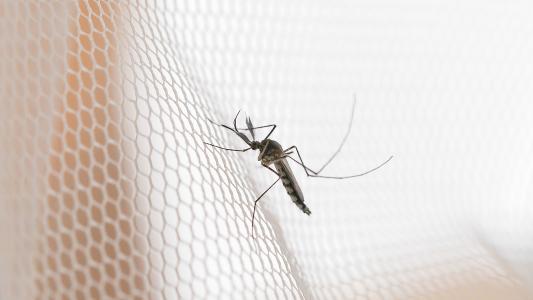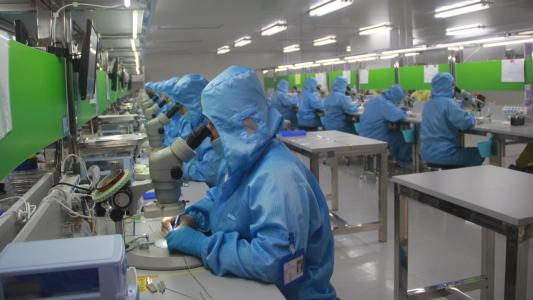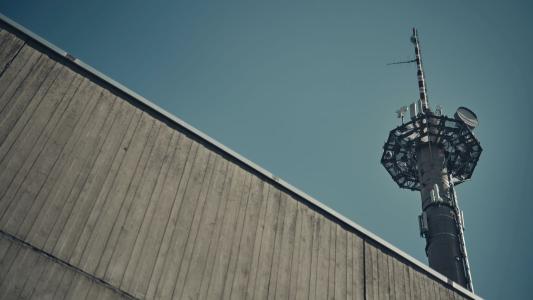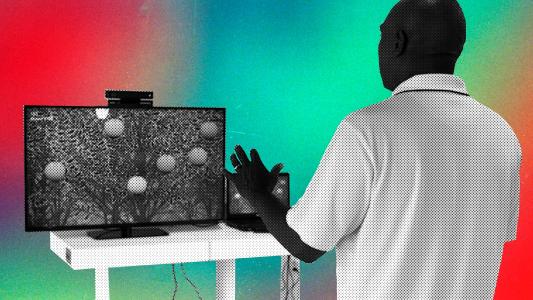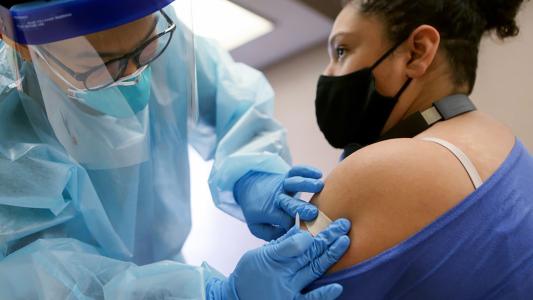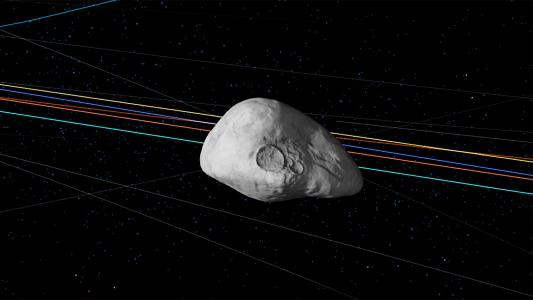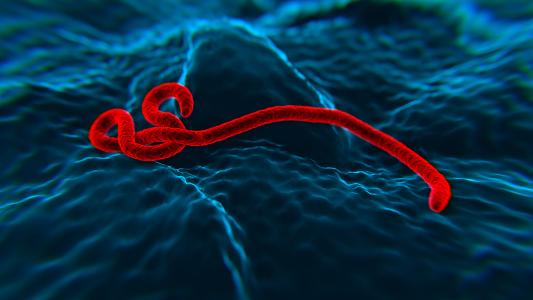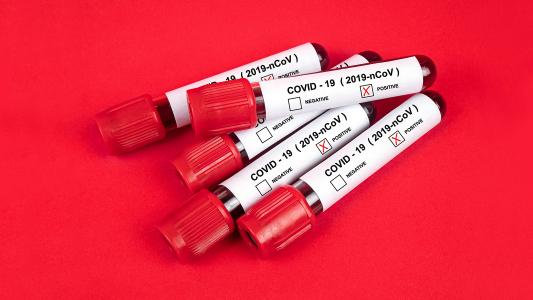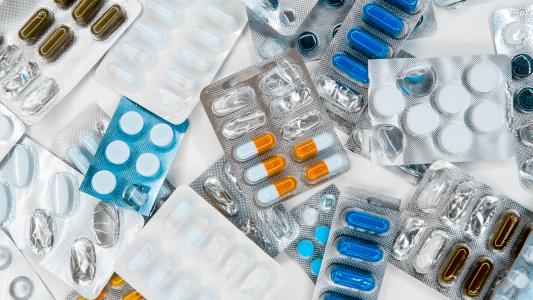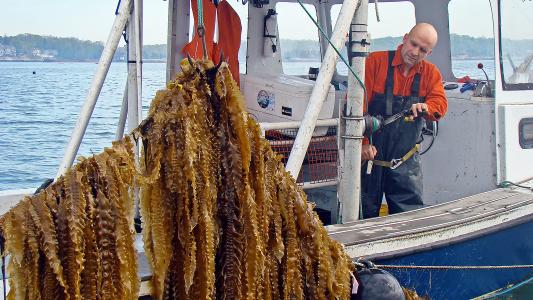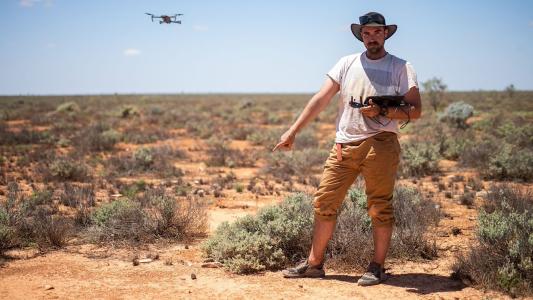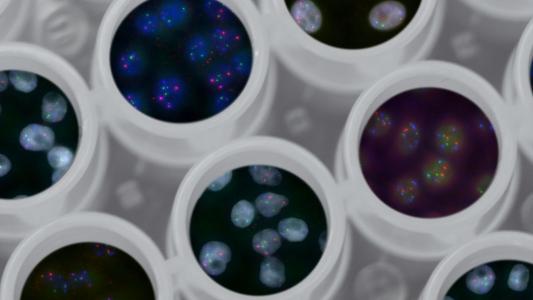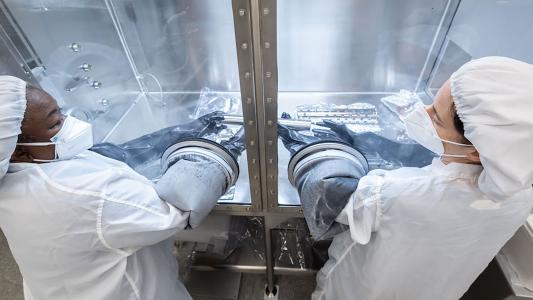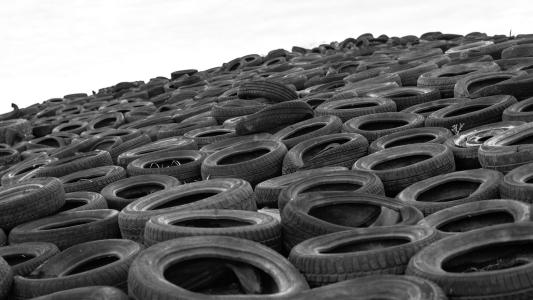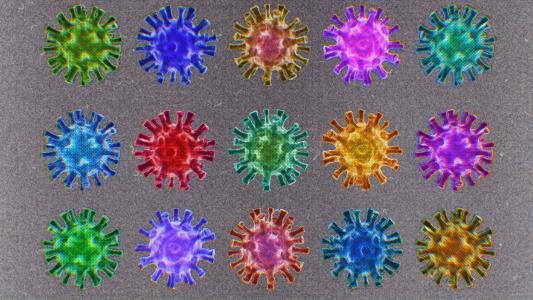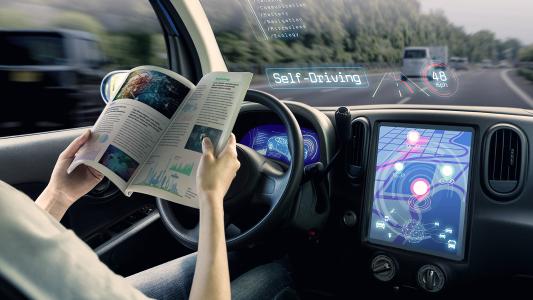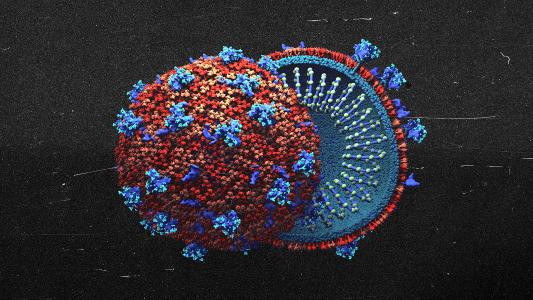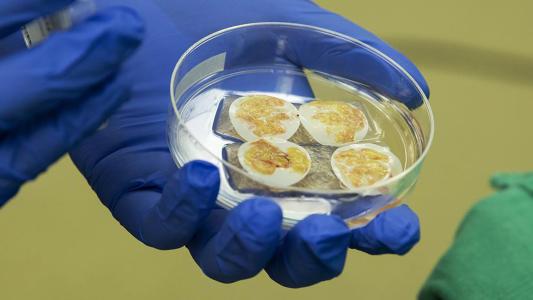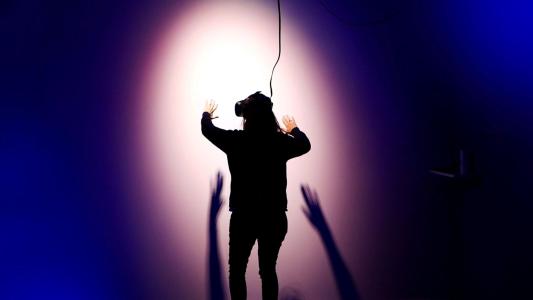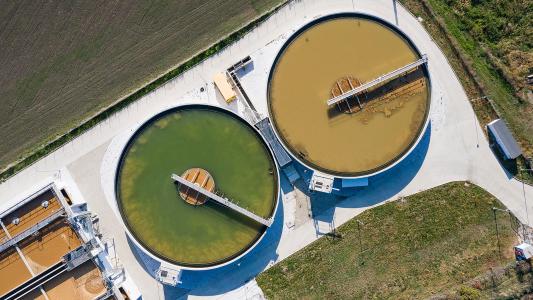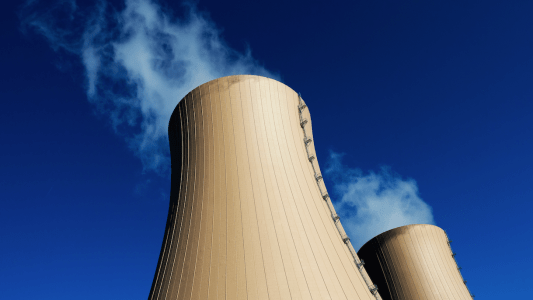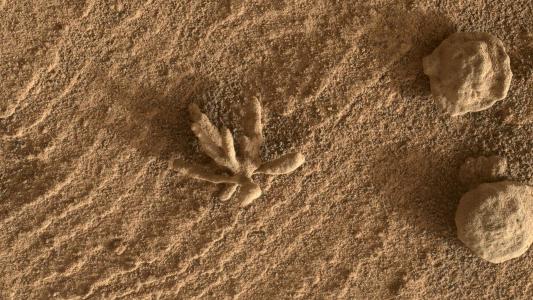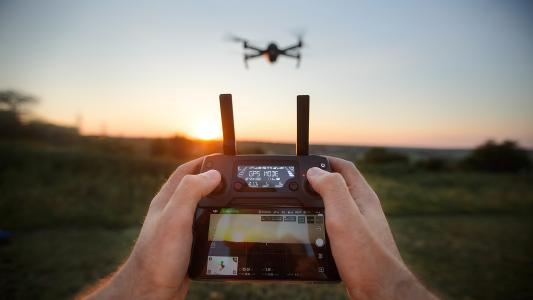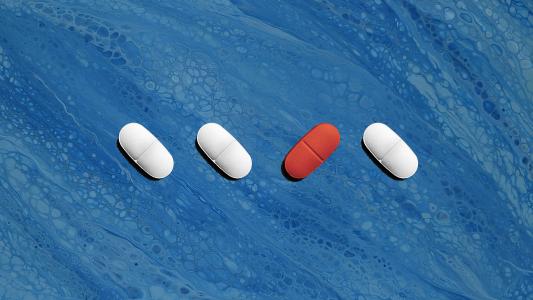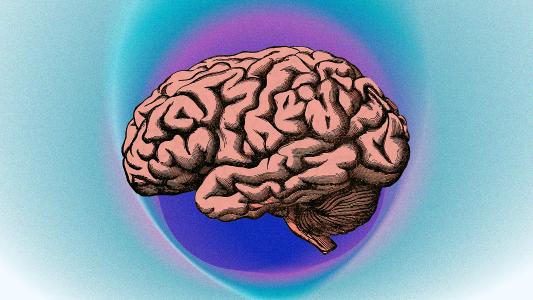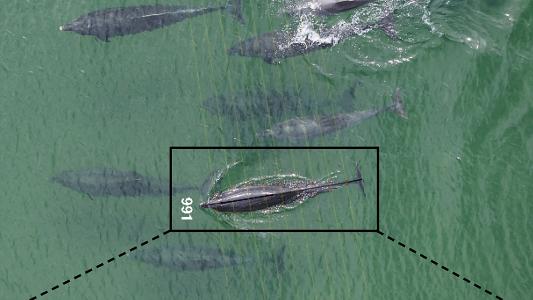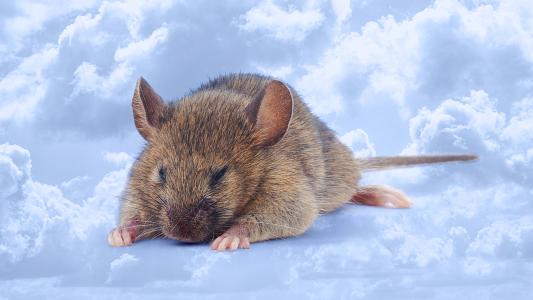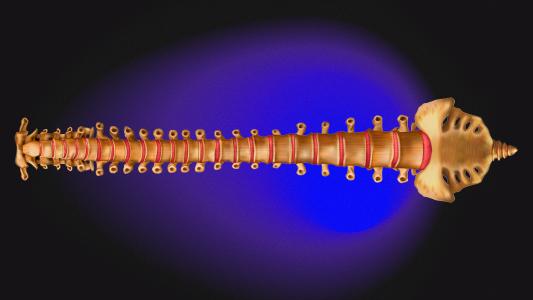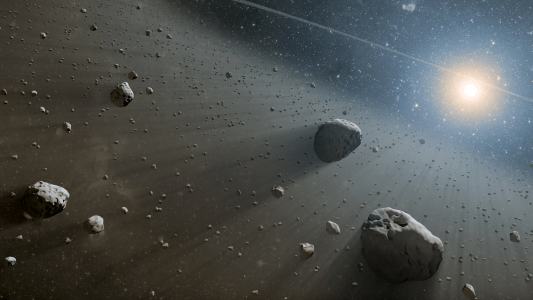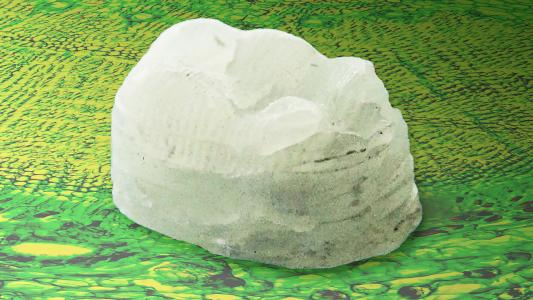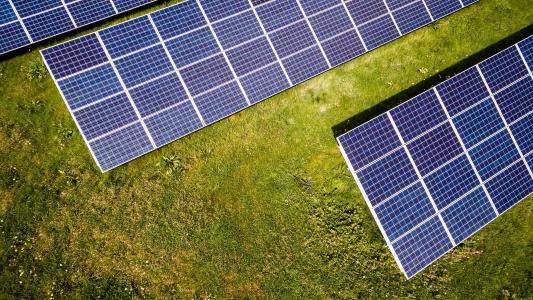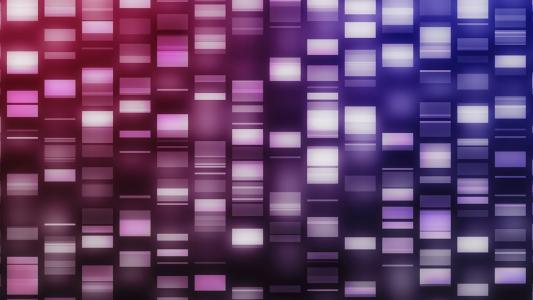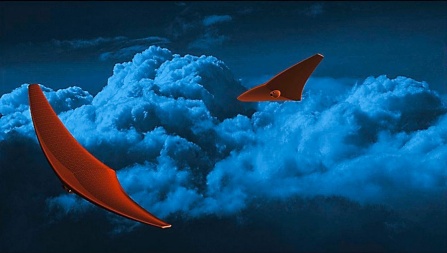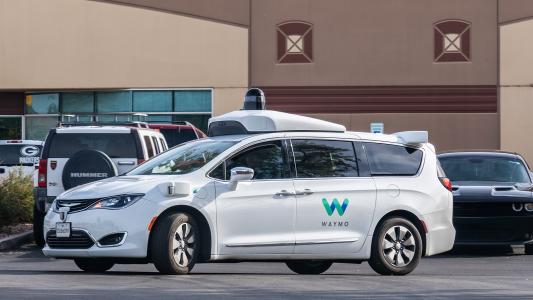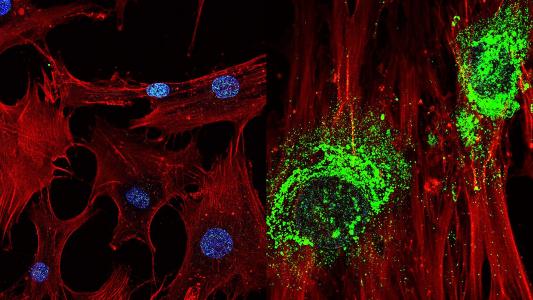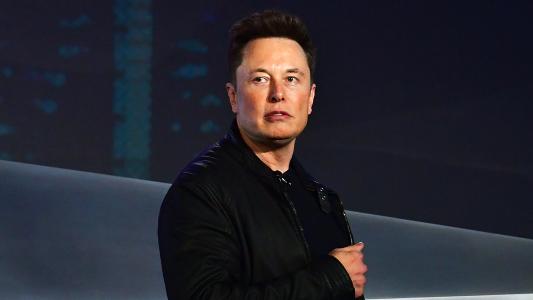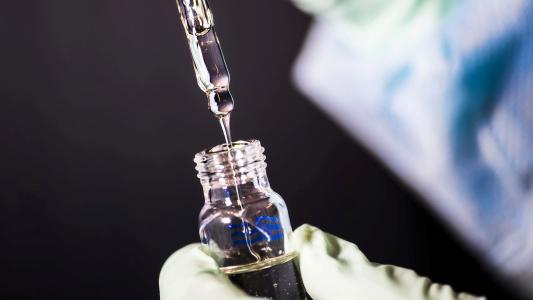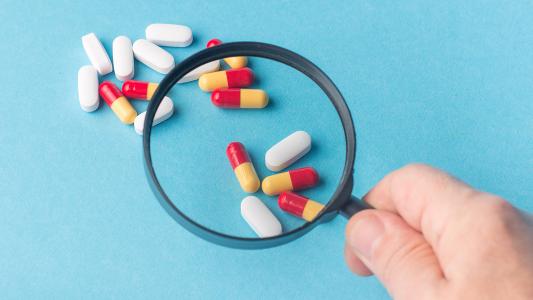Can my electric car power my house? Not yet for most drivers, but vehicle-to-home charging is coming
Want to help protect the environment, save money on gasoline, or try out the latest technology? Try powering your house with your car.
Wounds of kids with “butterfly disease” healed by DNA gel
A topical gene therapy helped heal the wounds of people with “butterfly disease,” a painful disorder that makes the skin incredibly fragile.
This bird-like drone can perch on branches, catch objects
Inspired by birds' perching abilities, researchers developed a drone with a bird-like structure that can land on a wide array of objects.
Hubble smashes record for farthest star ever seen
NASA's Hubble Space Telescope has smashed its own record for farthest star ever seen with the detection of “Earendel.”
Reversing hearing loss with regenerative therapy
MIT spinout Frequency Therapeutics’ drug candidate stimulates the growth of hair cells in the inner ear.
Cancer is addicted to iron. It could be a fatal weakness.
By homing in on the high levels of iron in certain cancer cells, researchers have created a more targeted anticancer drug.
High schoolers create $1 filter to remove lead in water
Maryland high schoolers have created a filter that removes lead in water. It costs just $1 and alerts users when it needs to be replaced.
ESA space telescope snaps pic of new NASA neighbor
ESA’s Gaia observatory has snapped a photo of NASA’s James Webb Space Telescope, its new neighbor at Earth’s second Lagrange point.
AI maps psychedelic “trip” experiences to regions of the brain – opening new route to psychiatric treatments
To better understand how these effects manifest in the brain, we analyzed over 6,000 written testimonials of hallucinogenic experiences.
Researchers scheme how they could ride a laser to Mars
Researchers have proposed an idea that will cut travel time to Mars down to just 45 days. All it takes is hitching a ride on a giant laser.
Combining crops and solar panels is allowing Kenya to “harvest the sun twice”
The panels are mounted high enough for crops to be grown underneath, sheltering them from the sun and allowing rainwater harvesting.
How tattoo machines could revolutionize vaccination
A tattoo machine may be a better delivery method for DNA vaccines than the standard syringe and hypodermic needle.
ESA plans to make the first oxygen on the moon
ESA plans to send a device that pulls oxygen from lunar regolith to the moon by 2025 and then build an oxygen-producing plant in the 2030s.
Male birth control pill to enter human trials in 2022
Clinical trials of a male birth control pill that was 99% effective at preventing pregnancy in mice are expected to launch in 2022.
A physician didn’t shower for 5 years. Here’s what he found out.
Hygiene rituals are as old as recorded civilization, but capitalism has spurred us to use increasingly elaborate and expensive regimens.
Radical new “Flying-V” plane aims to transform flight
The Flying-V airplane doesn’t look like anything you’ll find at today’s airports, but it could be the future of aviation.
Your pet dog could help people live longer, healthier lives
The Dog Aging Project is studying tens of thousands of dogs in the hope of helping pets and people live longer, healthier lives.
Internet-connected “smart” traps help cities combat rats
Internet-connected rat traps are bringing rodent control into the 21st century, helping cities leverage data in the battle against rats.
Vaccine used to treat COVID-19 for first time
A man whose persistent coronavirus infection kept him isolated for 7 months finally tested negative after receiving a COVID-19 vaccine.
This “family tree of all of humanity” shows how all of us are linked
Researchers have mapped the genetic ties between every person who ever lived, in the "first draft" of our shared family history.
Brain implant lets man with locked-in syndrome share thoughts
A man with total locked-in syndrome has used a brain-computer interface to spell out sentences with his mind.
Is the Salton Sea hiding enough lithium to power America?
A team of scientists plans to map out deep-earth lithium to see if it can sustainably supply America's urgent needs.
Meet the social entrepreneurs shaking up solar
Climate change and a lack of access to clean energy intensify the difficulties faced by minorities. Fortunately, leaders with strong roots in their communities have devised unique strategies for long-term change.
Paris plans to be completely cyclable by 2026
France is investing a total of 250 million euros ($290 million) to make the city of Paris entirely bikeable.
NASA’s helicopter on Mars snaps stunning desert photo
NASA has shared a new photo taken by Ingenuity, its helicopter on Mars, and announced plans to extend the spacecraft’s mission.
Engineered bacteria convert CO2 into valuable industrial chemicals
Many industrial chemicals have a large carbon footprint. But scientists have engineered bacteria that ferments carbon dioxide from the air to make industrial chemicals
Starbucks is creating an EV “charger highway,” from Seattle to Denver
Starbucks is aiming to capitalize on the demand for electric vehicle infrastructure by installing chargers at up to 15 locations in the U.S.
Californian wineries turn to owls as answer for growing pest problem
Rather than turning to rodenticides to deter pests, a new study is testing the effectiveness of owls to manage the problem.
MIT’s “Mini Cheetah” teaches itself to run 8.7 mph, breaking speed record
The four-legged robots learn how to move through experience — both in the real world and in simulations.
Mammals dream about the world they are entering even before birth
A study finds that baby mammals dream about the world they are about to experience to prepare their senses.
Elon Musk’s Starlink internet helps destroy Russian tanks
An elite Ukrainian drone unit is using SpaceX’s Starlink internet service to coordinate attacks on high-priority Russian military targets.
Elephant tusk DNA is used to expose poaching networks
Researchers using cell phone records, shipment logs, and elephant DNA have solved poaching mysteries and identified trafficking networks across the continent.
Swiss scientists are making jet fuel from sunlight and air
The fuel's reliance on sunlight makes desert areas prime land for production sites, leaving valuable agricultural land available for food.
Space lettuce engineered to stimulate bone growth
To protect Mars astronauts from bone loss, scientists genetically engineered a lettuce that produces a bone-stimulating hormone.
Meteorite’s fall to Earth retraced with dashcam footage
The unconventional method could help astronomers better track meteorites that fall during the daytime.
Fossil of oldest octopus and vampire squid relative may reveal 10-armed past
A newly described fossil may be the oldest relative yet found of octopuses and vampire squids — although if it is a new species at all is disputed.
A fabric that “hears” your heart’s sounds
An MIT team has designed an “acoustic fabric" to convert sound vibrations into electrical signals.
Video games for mental health are coming
New startup DeepWell Digital Therapeutics is developing video games to help treat mental health disorders.
NASA shares stunning star image taken by Webb telescope
A star image taken by NASA’s James Webb Space Telescope suggests the first-of-its-kind spacecraft is going to work even better than expected.
Computer scientists explain how to stop smart devices from spying on you
"Smart" appliances tempt you with useless conveniences, but myriad privacy violations lie just beneath their shiny exterior.
Michio Kaku makes 3 predictions about the future
Dr. Michio Kaku on what is likely and what is possible provides a stimulating vision of the future.
New children’s malaria treatment clears out infection in liver
Malaria can hide in the liver, causing relapse months or years later. Now, public health officials have a new treatment to prevent relapse for children under 16.
Blockchain experts are funding research that Big Pharma won't
Decentralized autonomous organizations (DAOs) use smart contracts on blockchains to change how scientific research is funded and shared.
What is 3G and why is it being shut down? An electrical engineer explains
3G networks are built using completely different equipment and algorithms than its newer replacements.
Video game for at-home stroke rehabilitation cuts costs, benefits patients
Patients and healthcare workers are benefitting from video games designed to help with stroke rehabilitation, chronic pain relief, and more.
One shot of this COVID-19 drug reduces risk of death by 60%
In-development COVID-19 drug Peginterferon Lambda reduced risk of hospitalization or lengthy emergency room visits by 50% in a phase 3 trial.
New asteroid spotted just before impact with Earth
NASA successfully pinpointed almost exactly where and when a new asteroid would hit Earth’s atmosphere, before it made contact.
New Ebola antibodies neutralize the most dangerous strains of the virus
Researchers have found two new antibodies which bind to the most dangerous strains of Ebola.
How AI is shaping the cybersecurity arms race
Defending against cyberattacks increasingly means looking for patterns in large amounts of data – a task AI was made for.
Volunteers cold call Russians to tell them the truth about Ukraine
Volunteers are using phone calls, spam emails, and more to counter Russian propaganda and tell Russians the truth about the Ukraine war.
Newly discovered types of brain cells may hold the key to memory
Researchers believe they have discovered two new types of brain cells that play a key role in memory.
A meat-free world by 2035? “Totally doable,” says Impossible Foods CEO
"Our mission is to completely replace the use of animals as a food technology by 2035," said Impossible Foods CEO Patrick O. Brown.
Blasting mushrooms with UV light boosts vitamin D by 4,600%
Roughly half the world population, including in America, has insufficient levels of vitamin D. UV irradiated mushrooms can help.
Volkswagen reveals release date for electric Microbus
Volkswagen will begin selling its all-electric ID. Buzz — a modern take on the iconic Microbus — in the U.S. in 2024.
International army of hackers joins Ukraine’s cyberwar
An estimated 400,000 volunteers have joined Ukraine’s IT army, helping the nation attack Russia from the digital realm.
China’s COVID-19 cases surge, with low elderly vaccination rates
China’s “zero-COVID” policies may be contributing to a surge of cases that has forced 50 million people into lockdown.
Safer painkillers: A novel drug treats pain without killing people
Painkillers have nasty side effects, such as organ damage or addiction. Researchers have discovered a new drug that may cause none of these.
CRISPR cattle cleared for the first time by FDA
Beef cattle genetically altered to be less susceptible to heat stress have been cleared for human consumption by the FDA.
Steering wheels now optional for driverless cars in US
Driverless cars no longer need to have manual controls, according to the National Highway Traffic Safety Administration’s safety standards.
Anti-aging isn’t a scam, but immortality almost certainly is
A new biotech firm with $3 billion in funding has announced plans to combat aging. But what does that mean for human life span, exactly?
Hugging a cushion that “breathes” can reduce anxiety
A study found that hugging a cushion that “breathes” was able to reduce anxiety for students prior to a test as much as guided meditation.
3D ocean farming: creating food while cleaning the ocean
3D ocean farming can help us feed Earth’s growing population while also improving the health of the oceans.
Drones and AI recover a meteorite for the first time
Australian researchers have trained an AI to locate fallen space rocks using footage from autonomous drone surveys.
Clues to schizophrenia and bipolar disorder hidden in the dark genome
A new study suggests that the causes of these disorders are hidden in "dark genes," which may account for the enigma of their development.
NASA opens untouched moon rock container from 50 years ago
NASA is opening a vacuum-sealed sample of moon rock and gas to help astronauts prepare for the next mission to the moon.
This company is tackling Kuwait’s ‘tire graveyard’ problem by tire recycling
Kuwait wants to build 25,000 new houses on the site of a former tire graveyard. Here's how they're going to do it.
Moderna will develop mRNA vaccines for Ebola, malaria, other major threats
Moderna is developing mRNA vaccines for 15 “priority" pathogens and launching a program giving other developers access to its mRNA tech.
Oculus exec bets $10,000 we'll have fully autonomous cars by 2030
An Oculus exec has publicly bet $10,000 that vehicles with Level 5 autonomy will arrive on city streets by 2030.
Scientists discover how the AIDS virus breaks cellular “lockdown”
HIV replication continues even when infected cells shut down. New research shows how.
Psychosomatic illness: Are some diseases caused by our memories?
The brain appears to remember immune responses, and memories can trigger them to happen again.
Baby thrives after first-of-its-kind heart transplant
A baby’s first-of-its-kind heart transplant could help future patients avoid organ rejection and reduce the need for immunosuppressant drugs.
4 things you need to know about the metaverse
Technology that merges the virtual and physical worlds could start to become a reality for consumers in just a few years.
Win-win: we can make fertilizer by purifying wastewater
Stanford engineers have developed a cost-effective way to convert a toxic byproduct of a wastewater filtration process into useful chemicals.
Elon Musk: Europe should revive nuclear energy
The Ukraine crisis has highlighted Europe's dependence on Russia for fossil fuels. Is more nuclear energy the solution?
Anonymous hacks Russian TV, plays Ukraine war footage
Hacker collective Anonymous infiltrated Russia’s state-run media channels to broadcast Ukraine war footage.
How the antidepressant Prozac could treat blindness
Prozac is a widely used antidepressant. Data indicates that the drug could be used to prevent blindness due to macular degeneration.
Curiosity discovers a “flower” rock on Mars
Curiosity has discovered a Martian rock shaped like a flower, and it's helping NASA scientists unravel the history of water on Mars.
Ukrainian citizens are using personal drones to spy on Russian troops
Ukraine has called on local drone owners to help the military conduct reconnaissance missions in the wake of Russia’s invasion.
Brains scans of the placebo effect show new way to treat depression
A meta-study of placebo effect research has revealed a link between the phenomenon and brain stimulation as a depression treatment.
Digital sound archives can bring extinct birds (briefly) back to life
Sound recordings remind us that these beings are invaluable, and that humans have a duty to preserve them.
New antidepressant helps patients in just three days
Adding the new antidepressant zuranolone to standard treatments helped people with major depressive disorder feel better in less time.
Pregnant dolphins identified by drones for the first time
Using drone photography, University of Aberdeen researchers have been able to identify pregnant dolphins for the first time.
How a bedtime routine may affect your brain — and your sleep
A mouse study has yielded new insights into the effect of a bedtime routine on the brain, which could lead to new therapies for insomniacs.
Spinal cord implants help paralyzed people walk again
A new spinal cord implant uses electricity to reawaken spinal neurons.
An asteroid could wipe out an entire city – here’s NASA’s plan to prevent catastrophe
Cosmic bodies, like asteroids and comets, are constantly zooming through space and often crash into our planet.
MIT’s new plant-based material could replace plastics
Using cellulose from wood, MIT researchers have made a plant-based material tough as bone and hard as aluminum.
People are booking Airbnbs in Ukraine they’re never going to use
People are booking Airbnbs in Ukraine as a way to get money directly to hosts living in the nation, which is under attack by Russia.
First solar canal project is a win for water, energy, air and climate in California
California’s aging power infrastructure has contributed to catastrophic wildfires and multiday outages. Solar canals can help.
DAO raises millions of dollars in crypto to support Ukraine
A decentralized autonomous organization (DAO) has raised $7 million in crypto for Ukraine, demonstrating a new model for charity and more.
New tech cuts years off of DNA sequencing
The Stanford Medicine team set a new record for DNA sequencing. They went from obtaining a blood sample to diagnosing an illness in just 8 hours.
Could electrocuting clouds be the key to making it rain?
By analyzing the energy within raindrops, researchers found that they could squeeze water from the clouds by electrically supercharging them - another step to control the weather.
Nuclear fusion: how excited should we be?
We know that fusion works – it is the process that powers the Sun, providing heat and light to the Earth. But can we do it ourselves?
NASA considers stingray-like drone to fly the skies of Venus
The winged drone is designed to ride 200-mph Venusian winds.
Self-driving cars could transform the world in unexpected ways
Self-driving cars could impact the future of economics, equity, privacy, and city planning.
Sonic waves could help bones grow back after cancer
A technique that turns stem cells into bone cells using only sound waves could help people regrow bone destroyed by disease.
Starlink lands in Ukraine
Starlink satellite internet service has been established in Ukraine.
The hacker group Anonymous has waged a cyber war against Russia
Alongside Anonymous, large numbers of Ukrainian cyber professionals have volunteered to assist with Ukraine’s cyber defense.
Hubble gets first good look at the dark side of a “hot Jupiter”
The first detailed look at the dark side of a hot Jupiter exoplanet reveals conditions that could create metal clouds and liquid gem rain.
90% of drugs fail clinical trials – here’s one way researchers can select better drug candidates
It’s disappointing when the years of effort and resources spent to push a drug candidate to patients so often lead to failure.
What the Russian invasion means for clinical trials in Ukraine
Russia’s invasion has the potential to disrupt clinical trials in Ukraine, warns one of the many companies staging trials in the nation.
